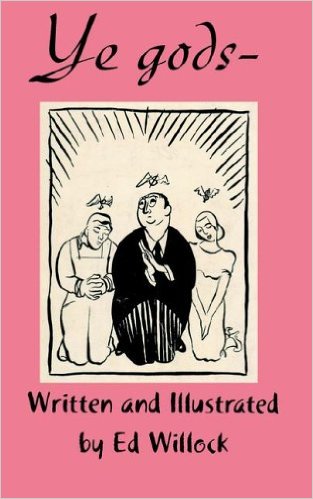
Occasionally one comes upon a book that presents simple truths in a plain and delightful way. Such books are commentaries based on the experience of life that ring true to the reader. One such book is a slim collection of essays titled simply Ye gods. Originally written and illustrated by Ed Willock in 1948, the book was republished by Catholic Authors Press in 2006.
The central thesis of the book is that so many of the attitudes and beliefs of modernity actually serve as America’s “household gods” with their accompanying mysticisms. The author illustrates his articles with drawings of typical Americans engaged in the “worship” of these false gods. He points out the contradiction of those who reject the one true God and the practice of the Faith yet readily embrace a pantheon of pagan idols and the empty frustration of living a life without God.
Although written many decades ago, most of the modern neo-pagan idols he mentions are still adored. Indeed, the strange “liturgies” surrounding these gods has only accelerated with the introduction of social media and the frenetic intemperance of the times. Today, everyone worships at at least one or a good number of these false altars.
Some of the idols are actually an adoration of the individual and are hardly modern. These include the quest for success, money, health, luck and romance. Other gods are more recent additions brought about by modern lifestyles such as glamour, advertising, novelty, sports and popularity. Yet other gods are supported by the advance of technology such as progress, bigness, “omni-science,” speed and efficiency. Today, new postmodern gods more suited to the times, could probably be added to this tragic pantheon such as instant connectivity, extreme individualism or incivility.
The underlining philosophy behind the worship of neo-pagan idols is the illusion that spiritual desires can be satisfied with the follies of life. Willock explains how modern man “tries to assuage the hunger of his soul with material food.” The tendency of the global masses who worship the multiple modern idols is to unify this worship in the super-god of the omnipotent state, thus finding their “beatitude in the mass, rather than in the Mass.”
What Does Saint Thomas Say About Immigration?
Ye gods is a succinct commentary that clearly indicates where modernity has gone wrong. Best of all, the author points in the direction of the Church and the worship of the one, true God as the only real solution to society’s ills.
[like url=https://www.facebook.com/ReturnToOrder.org]


